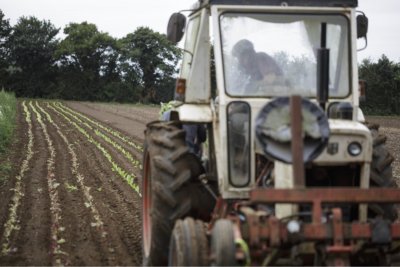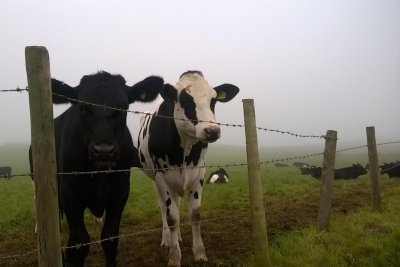News • Sustainable Farming Campaign
Delay by PM over antibiotic resistance action puts UK health in danger
The Alliance to Save Our Antibiotics is urging the Prime Minister to make the announcement on antimicrobial resistance he promised the House of Commons during Prime Minister's Questions on Wednesday 7th May 2014.
In a reply to a question from Zac Goldsmith MP, David Cameron acknowledged that the problem of antibiotic resistance could have 'unbelievably bad consequences' leading to quite minor ailments not being properly treatable by antibiotics. The Alliance is urging the government to take urgent action to reduce antibiotic use in both medicine and farming.
The issue was further highlighted this week at the World Health Assembly. Attendees confirmed that a catastrophic post-antibiotic age - in which minor, common infections could again become killers - is a real possibility unless urgent action is taken.
At the World Health Assembly conference on 20th May the Netherlands’ Minister of Health, Edith Schippers said: "People are getting seriously ill and are dying as a result of skin infections and diarrhoea. Common surgeries like knee replacement will become potential killers because of secondary infections that are untreatable. This is a global problem on a par with, if not more serious than, nuclear security, international terrorism and climate change."
The Alliance to Save Our Antibiotics has welcomed the strong leadership being shown on the issue by the UK’s Chief Medical Officer, Prof Dame Sally Davies, who was described by delegates at the World Health Assembly as a "formidable global advocate on antimicrobial resistance".
In a letter to David Cameron on 13th May 2014, the Alliance to Save Our Antibiotics said: "It simply does not make sense to be feeding nearly half of all the antibiotics used in this country to farm animals, just so that they can be kept in high numbers indoors, often in conditions which carry with them the risk of high levels of disease."
In the measures the Prime Minister is due to announce, the urgent phase-out of the routine preventative use of antibiotics in farming must be included.
Alison Craig, Campaign Manager for the Alliance to Save Our Antibiotics said: "Our near European neighbour the Netherlands has phased out routine preventative use of antibiotics in farming by government taking strong and decisive action and industry taking voluntary measures - so why can't we do the same in the UK?"
In 2007 the Netherlands was one of the world’s heaviest users of antibiotics in food animals. In 2009 the government decided to decrease farm use of antibiotics by 50%. This was achieved by 2013.
Alison Craig continued: 'It is alarming that, in this country, we don't even yet know how many people are already dying due to antimicrobial resistance. By contrast, in the Netherlands they know that there are 2 million hospitalisations per year due to resistance. If the Prime Minister knows that there will be 'unbelievably bad consequences' for families, why is his government being so slow about getting a grip on the problem?'
Ends
For media enquiries, please contact the Soil Association press office:
Sarah Weston, Press Office Manager: 0117 914 2448/ 07827 82538 – sweston@soilassociation.org
Holly Black, Digital Communications and Press Officer: 0117 314 5170 – hblack@soilassociation.org
Contacts:
Alison Craig, Campaign Manager, Alliance to Save Our Antibiotics: 07709 730561 and 01722 335858
Coilin Nunan, Scientific Advisor, Alliance to Save Our Antibiotics: 01890 752957
Notes to editors
Prime Minister's Questions, Wed 7 May 2014:
Q13. [903885] Zac Goldsmith (Richmond Park) (Con): The chief medical officer warned last month that we are misusing antibiotics to such an extent that we risk returning, in just a matter of years, to a 19th-century environment where routine operations carry a grave risk of death. A couple of days ago, the World Health Organisation issued a similar warning, saying that we are hurtling towards the post-antibiotic age. On that basis, it is surely madness to continue to allow so many antibiotics to be used on our factory farms—about half the total use in this country—when we know that that contributes to resistance.
The Prime Minister: My hon. Friend raises an extremely serious problem, which is global in its nature and could have unbelievably bad consequences in terms of anti-microbial resistance leading to quite minor ailments not being properly treatable. One of the problems is that the way research is done currently by pharmaceutical companies is not necessarily bringing forward new antibiotics in the way that we need or solving this problem. I have met the chief medical officer to discuss this. There are a number of steps that we can take here in the UK and working with other countries, and I hope to say something about it soon.
The Chief Medical Officer (CMO) has previously warned that antimicrobial resistance is a "ticking time bomb', and that routine operations could become deadly in just 20 years if we lose the ability to fight infection. She has said: 'If we don't take action, then we may all be back in an almost 19th Century environment where infections kill us as a result of routine operations. We won't be able to do a lot of our cancer treatments or organ transplants.'
PQ reply 9th April 2014
Zac Goldsmith: To ask the Secretary of State for Health pursuant to the answer of 4 March 2014,Official Report, columns 779-80W, on death bacterial diseases, if he will make it his policy to collect and publish data on (a) how many NHS patients have died due to antibiotic resistance and (b) which specific pathogens or drug resistant strains of infection caused such deaths. [195017]
Dr Poulter: Although information on deaths associated with specific antibiotic resistant infections is not currently available from routine data sources, the Department is exploring options for producing better and more reliable surveillance. These options include the linking of death registration with resistance-specific surveillance datasets on healthcare associated infections. We understand that the first set of mortality data, covering methicillin-resistant Staphylococcus aureus and C.difficileinfection, should be made available by Public Health England, towards the end of the year.
On 24 May, health ministers attending the annual World Health Assembly approved a resolution on 'Combating antimicrobial resistance, including antibiotic resistance' that seeks to intensify efforts in this area. In his summary of the meeting at the World Health Assembly on 20th May, Dr Keiji Fukuda, the Deputy Director General for Health Security at WHO stated:
- Awareness raising on antimicrobial resistance was urgently needed;
- The dynamics between non-communicable diseases (such as cancer) and antibiotic resistance must be better understood;
- The scope of the solution required cross-sectional involvement from the agricultural and health sectors as well civil society;
- National action plans must be driven by political will within governments;
- There was a need for technical and science based action with particular respect to integrated surveillance.
A WHO global action plan will also be developed for consideration at the 2015 Assembly. There will be tripartite collaboration between the World Health Organization (WHO), the United Nations Food and Agriculture Organization (FAO) and the Organizaci๓n Mundial de Sanidad Animal (OIE – World Organization for Animal Health), with WHO taking the leadership role.
The new civil society global Antibiotic Resistance Coalition (ARC) was formed at the World Health Assembly and on 22 May urged the WHA to 'Act now, or face catastrophic post-antibiotic era'. The ARC Declaration is available here.
The Alliance to Save Our Antibiotics is an alliance of health, medical, environmental and animal welfare groups working to stop the over-use of antibiotics in animal farming. It was founded by the Soil Association, Compassion in World Farming, and Sustain in 2009, and is supported by the Jeremy Coller Foundation. Its vision is a world in which human and animal health and well-being are protected by food and farming systems that do not rely routinely on antibiotics and related drugs.
Published Monday 2 June 2014
Sustainable Farming Campaign: Sustain encourages integration of sustainable food and farming into local, regional and national government policies.





